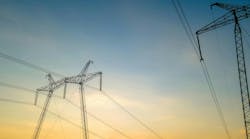In a statement commenting on Sochi winning the winter Olympic bid, RAO UES Management Board Chairman Anatoly Chubais said, “The programs developed by RAO UES of Russia will help accommodate the increased electricity consumption expected in Sochi in connection with the preparation and hosting of the Olympics, and ensure reliable electricity supply in the area.”
Today, the Krasnodar Kray is among Russia's most rapidly developing regions. The electricity consumption growth rate in the area is 50% higher than the country's average. In February 2007, RAO UES of Russia and the Krasnodar Kray administration signed an Agreement to modernize the region's energy sector. The greater part of the projects under the Agreement is designed to develop the Sochi power facilities. The overall cost of the projects to be implemented is estimated at over RUB83.6 billion, of which RUB33.7 billion will be used to expand the generation capacity and RUB49.9 billion will be invested in power grid facilities.
Chubais added, “An important part of our investment programme involves projects to develop the bulk transmission (trunk) grids, build new substations, and replace almost all of the power distribution infrastructure in Sochi.
I would like to highlight that Sochi will be the first place in Russia where we will implement the advanced solutions developed by Russian and foreign companies. Specifically, we will build next-generation power transmission lines which will not be prone to icing and storms. In the distribution sector, we have plans to broadly implement isolated wires and cables, and start to use the so-called "intellectual" distribution networks using computer technologies. Due to the mountainous relief in the city and neighbourhood of Sochi and its climate conditions, the energy companies will extensively use cables intended for different purposes not typical for Russia, which will be laid underground and on the Black sea bottom.
I would like to emphasize that most of these projects will have been completed by 2011, and this will ensure reliable power needed for Sochi to prepare for the 2014 Winter Olympics and, afterwards, to host the Games.”

